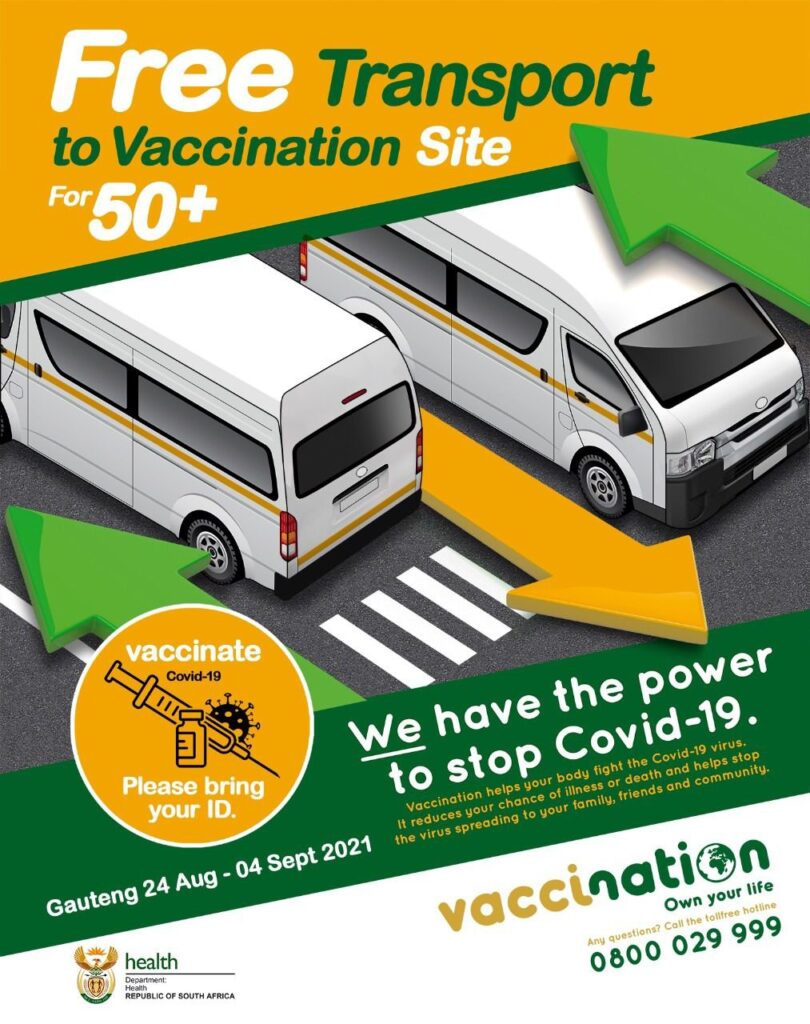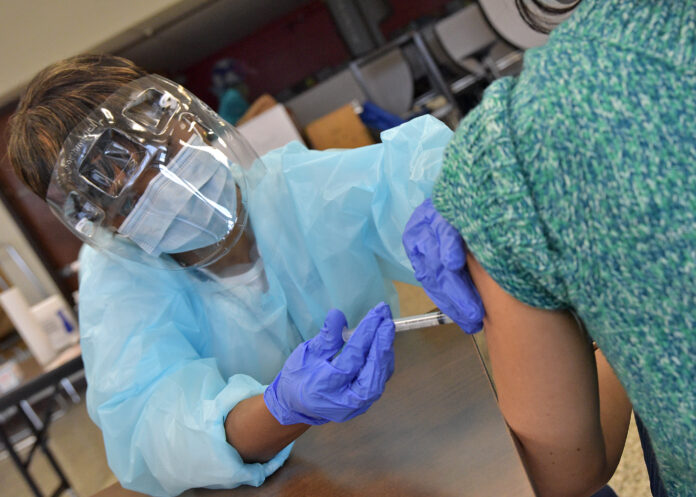- Pop-up COVID-19 vaccination sites will soon be set up at shopping centres, university campuses, and schools.
- The health department is also piloting a project to provide people with free transport to and from vaccination sites.
- Shoppers can expect health department flyers promoting COVID-19 vaccines in their shopping bags.
Experiences in countries such as the United States show that the easier governments make it to get a COVID vaccine, the more likely people who are vaccine hesitant are to get vaccinated. One way to do this is to take jabs into communities, instead of expecting people to travel to sites which may cost them money. In South Africa, allowing people to do walk-ins at sites and permitting them to get registered on site now also make it more convenient to get a shot. We asked the national health department’s deputy director general in charge of the country’s vaccine roll-out, Nicholas Crisp, how the department plans to make vaccinations more accessible on Health Hub, a programme Bhekisisa produces in partnership with Newzroom Afrika.
Mia: What is the health department doing to make it easier to get vaccinated?
Nicholas Crisp: If people are going to shopping malls, then we need to make sure there’s a place at the shopping mall [to get vaccinated]. That’s what we call a pop-up [site]. It’s literally a tent or gazebo type arrangement where on that particular day vaccinators will come from the fixed sites and provide vaccinations to people at that [pop-up] site.
- Our friends at GroundUp filed this story on residents in Nelson Mandela Bay Municipality visiting pop-up sites over the past weekend.
The same thing can happen at taxi ranks and people’s places of work. Many employers are coming to us and saying, can’t you just come to our place of work and vaccinate people there?
[We will also send vaccinators to] universities and colleges [to host pop-up sites], for example, institutions of higher learning, and move them from one place to the other, so that it’s easier and quicker for people to get vaccinated at those places.
Mia: On Friday the health minister said the health department will provide transport to vaccination sites. How will that work?
Nicholas Crisp: This is quite an exciting thing, but it requires a lot of logistics [from our side]. It’s not the core business of the health department to [provide transport], so we want to be careful. There’s a pilot project starting onTuesday [August 24] at five big sites around the country where there will be shuttle buses and taxis.
Are you 50 years or older and don’t have transport to a vaccination site in Gauteng, the Eastern Cape and KwaZulu-Natal? Free transport is now available. Check out the schedules:
- Gauteng (24 Aug – 4 Sep): http://shorturl.at/mGJ06
- KwaZulu-Natal and the Eastern Cape: (25 Aug – 5 Sep): http://shorturl.at/lnoCV

In the Western Cape, they have a thing called Red Dot taxis. (Red Dot taxis were initiated to provide safe evening transport for public sector healthcare workers home from their places of work.) The Red Dot taxis are going to be assisting to get people to the Cape Town International Convention Centre and Athlone stadium [where vaccinations are done].
A couple of pilot sites in Gauteng will run a shuttle bus and taxi service together with various operators for about a week to see what we can learn from it. [We will] establish exactly which pickup points [work best during the pilot]. Whatever we can learn from that we will use to make announcements and roll [transport services] out to even more sites.
Mia: From research we know that if we increase people’s trust in vaccines, they’re more likely to get vaccinated. But for this we need well designed communication campaigns. We haven’t seen enough of this from the health department. Are you planning to improve on this?
Nicholas Crisp: People learn and get information from a lot of different places. In the beginning, as we rolled out, it was formal communication that was taking place in the newspaper, on the TV, sometimes on radio stations. Now [more] communication mediums have come to us asking us to help with messaging.
We would like to participate, we want to communicate. We’re clear that we are communicating facts. In the past week or so, we’ve made a concerted effort to bring everybody on board and provide the material and necessary details of what it is that people are asking us that they want to know. We should see a lot more in that space. In the print media space, a lot of people have asked [to help with messaging]. [Shops] are prepared to put little notes in with their grocery packages or [organisations that provide] food parcels and so forth. I’m hoping we’re going see a lot more of this rolling out in the next week or two.
[WATCH] Mia Malan asks Nicholas Crisp how the health department will make it easier to get vaccinated
Mia Malan is the founder and editor-in-chief of Bhekisisa. She has worked in newsrooms in Johannesburg, Nairobi and Washington, DC, winning more than 30 awards for her radio, print and television work.





